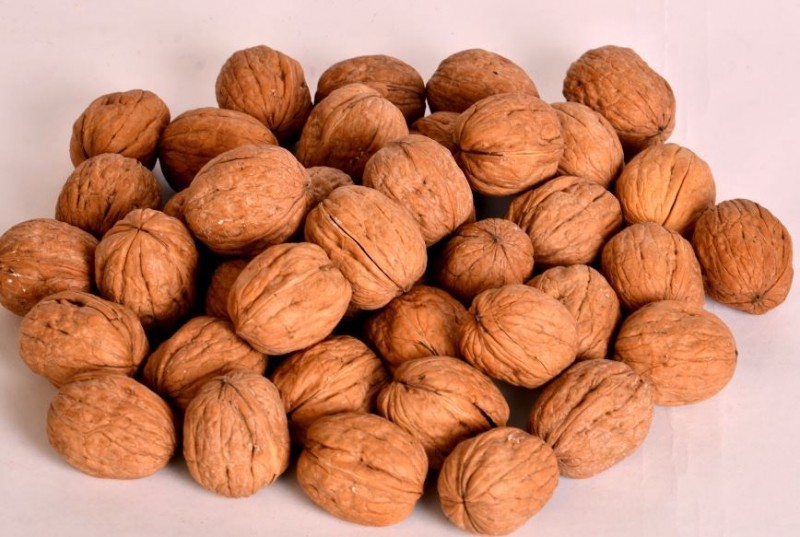
Walnuts are often regarded as a nutritional powerhouse, offering a wide range of health benefits for both physical and mental well-being. Regular consumption of walnuts is highly recommended as a part of a balanced diet. Packed with monounsaturated fats, protein, carbohydrates, fiber, and various essential nutrients, walnuts can contribute significantly to your overall health. Moreover, walnuts contain polyunsaturated fatty acids, which can support cardiovascular health and possess anti-inflammatory properties. In this article, we will explore the numerous advantages of incorporating walnuts into your daily diet.
Nutritional Value of Walnuts:
Walnuts are rich in nutrients that are essential for a healthy body. They contain a balanced combination of macronutrients and micronutrients, making them a valuable addition to your meals. Here is an overview of the key nutrients found in walnuts:
Monounsaturated Fats: Walnuts are abundant in monounsaturated fats, which are considered heart-healthy fats. These fats can help maintain healthy blood vessels and reduce the risk of heart disease.
Protein: Walnuts are a good source of plant-based protein, making them an excellent choice for vegetarians and vegans. Protein is essential for muscle development and repair.
Carbohydrates: Walnuts provide a source of carbohydrates, which are a vital energy source for the body. They can help sustain energy levels throughout the day.
Fiber: Fiber is crucial for digestive health, and walnuts are packed with dietary fiber. A diet rich in fiber can aid in digestion and prevent constipation.
Micronutrients: Walnuts contain various micronutrients, including vitamins and minerals such as vitamin E, magnesium, and potassium, which are essential for overall health.
Polyunsaturated Fatty Acids: Walnuts are particularly rich in polyunsaturated fatty acids, including omega-3 fatty acids. These fats play a significant role in maintaining brain health and can have a positive impact on cognitive function.
Health Benefits of Walnuts:
Cardiovascular Health:
One of the most well-established benefits of walnut consumption is its positive impact on heart health. Walnuts are known to help reduce the risk of heart disease in several ways:
a. Cholesterol Control: The monounsaturated fats and polyunsaturated fatty acids found in walnuts can help regulate cholesterol levels in the blood. By reducing LDL (bad) cholesterol and increasing HDL (good) cholesterol, walnuts contribute to a healthier cardiovascular system.
b. Anti-Inflammatory Effects: The polyunsaturated fatty acids in walnuts have anti-inflammatory properties, which can help prevent inflammation in the arteries. Chronic inflammation is a significant risk factor for heart disease.
c. Blood Pressure Regulation: The potassium content in walnuts can aid in controlling blood pressure, reducing strain on the heart and arteries.
Brain Health:
Walnuts are often referred to as "brain food" due to their high omega-3 fatty acid content. Omega-3 fatty acids are essential for brain health and cognitive function. Consuming walnuts regularly can help:
a. Improve Memory: Omega-3 fatty acids have been associated with improved memory and cognitive function. They may help protect against age-related cognitive decline.
b. Mood Enhancement: Some studies suggest that omega-3 fatty acids can have a positive impact on mood and may help reduce the risk of depression and anxiety.
c. Neuroprotective Effects: The antioxidants and anti-inflammatory properties of walnuts may play a role in protecting brain cells from damage and degeneration.
Weight Management:
Contrary to the misconception that nuts lead to weight gain, incorporating walnuts into your diet can actually support weight management. The combination of protein, healthy fats, and fiber in walnuts can help:
a. Promote Fullness: The satiating effect of walnuts can help control appetite and reduce overall calorie intake.
b. Boost Metabolism: Protein is known to boost metabolism, and the protein content in walnuts can contribute to calorie burning.
c. Healthy Snacking: Snacking on walnuts can be a nutritious way to curb cravings and prevent overindulgence in less healthy snacks.
Digestive Health:
The fiber content in walnuts is beneficial for digestive health. Fiber aids in:
a. Preventing Constipation: A diet rich in fiber promotes regular bowel movements and prevents constipation.
b. Supporting Gut Health: Fiber acts as a prebiotic, nourishing beneficial gut bacteria, which can have a positive impact on overall gut health.
c. Weight Management: High-fiber foods like walnuts can contribute to a feeling of fullness, reducing the likelihood of overeating.
Antioxidant Properties:
Walnuts are a good source of antioxidants, including vitamin E and polyphenols. Antioxidants play a crucial role in protecting cells from oxidative damage caused by free radicals. By reducing oxidative stress, walnuts may help:
a. Slow Aging: Antioxidants can help slow the aging process by protecting cells from damage.
b. Reduce the Risk of Chronic Diseases: Antioxidants are associated with a reduced risk of chronic diseases such as cancer and heart disease.
c. Skin Health: The benefits of antioxidants extend to skin health, as they can help maintain a youthful and radiant complexion.
Incorporating walnuts into your daily diet can offer a wide array of health benefits, ranging from improved heart health and cognitive function to weight management and digestive well-being. These nutrient-packed nuts are a versatile and delicious addition to meals and snacks. However, moderation is key, as walnuts are calorie-dense. Including a handful of walnuts as part of a balanced diet can help you harness their remarkable health benefits while maintaining a healthy lifestyle. So, go ahead and enjoy the natural goodness of walnuts as you embark on a journey to a healthier you.
How to Lower Your BP: Follow These Lifestyle Changes for Hypertension Control
How to Maintain a Healthy Heartbeat: Understanding and Managing Heart Palpitations
Are You Struggling with Memory or Health Issues? This Intake Can Help You